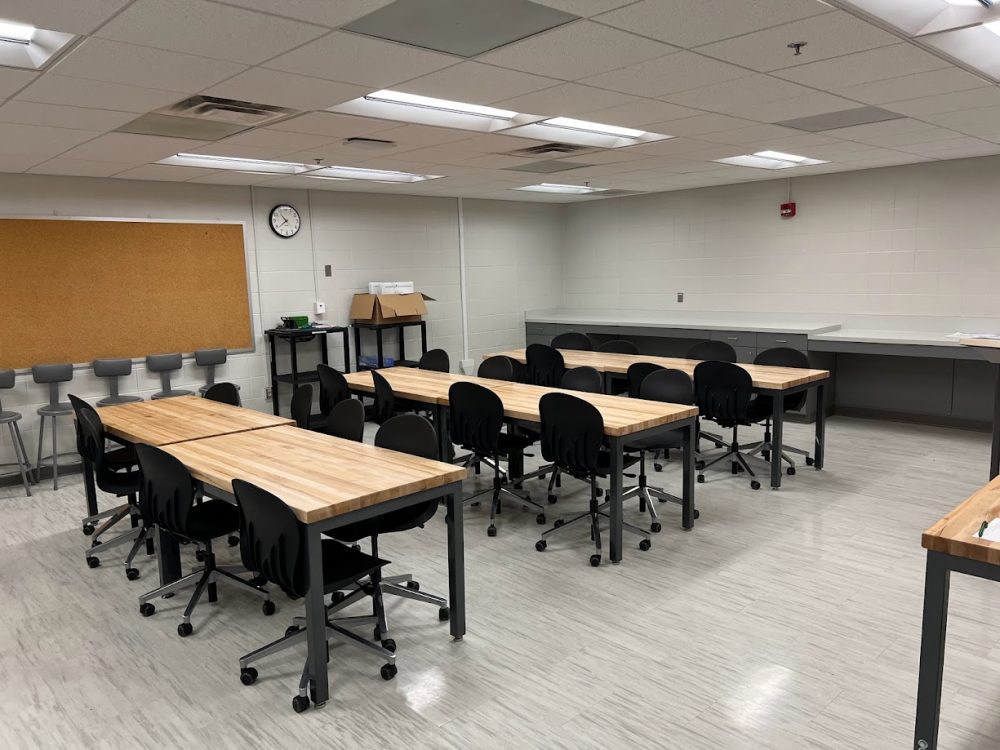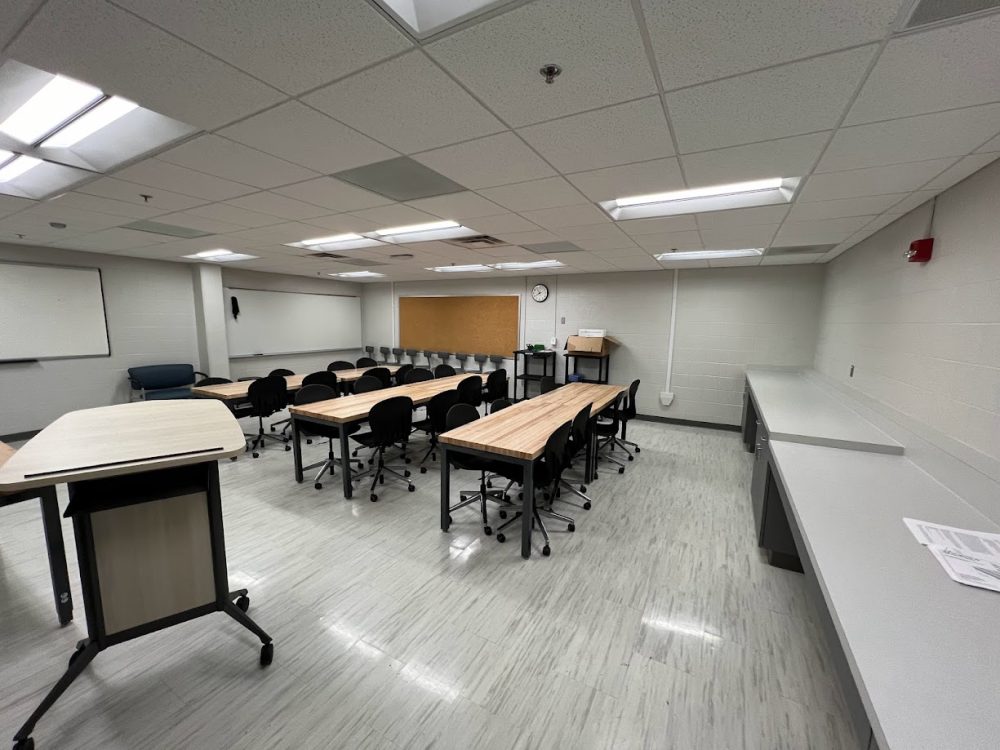Research & Teaching Facilities
Below is an overview of the research and teaching facilities that faculty and students can utilize in both classroom and research settings. For current research areas within the Department of Earth, Environmental, and Geographical Sciences, please click here.
research facilities
Hydrology and Biogeochemistry lab
Room: 310
PI: Dr. Craig Allan
The Hydrology and Biogeochemical Lab is equipped for analyzing a variety of environmental research problems, from water chemistry to soil analysis. Chemical characterization of water samples can be performed using the labs two Dionex DX-500 Ion Chromatographs for analyzing cations and anions, as well as the Shimadzu TOC-V Total Organic Carbon and Nitrogen analyzer and the FLASH 2000 CHNS Analyzer, both of which are capable of analyzing solid samples.
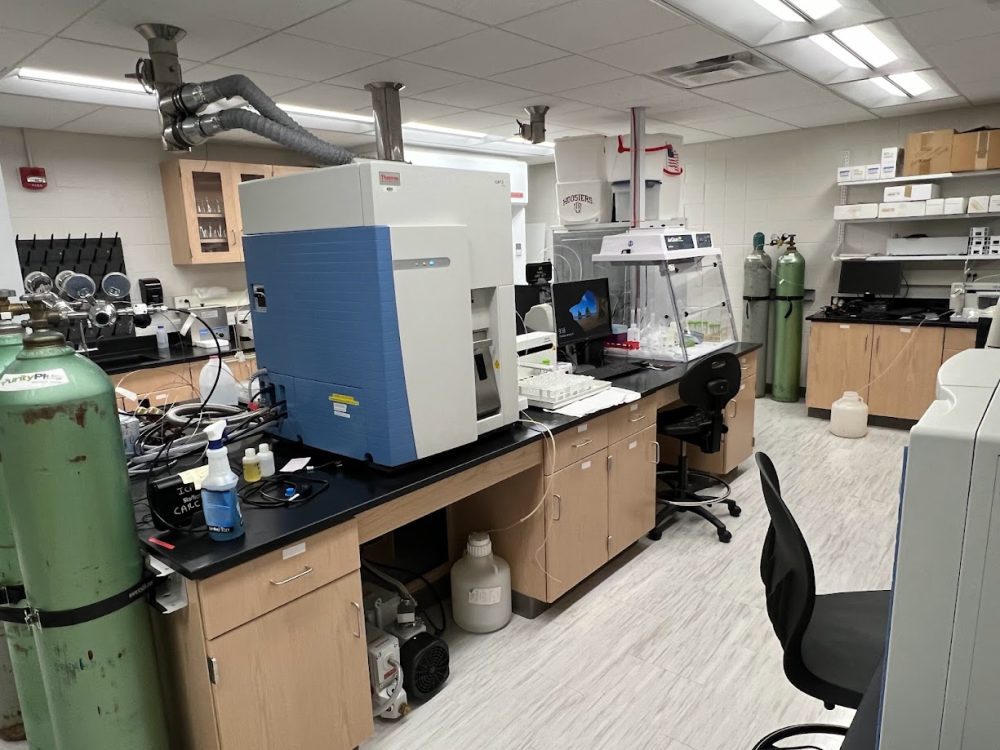
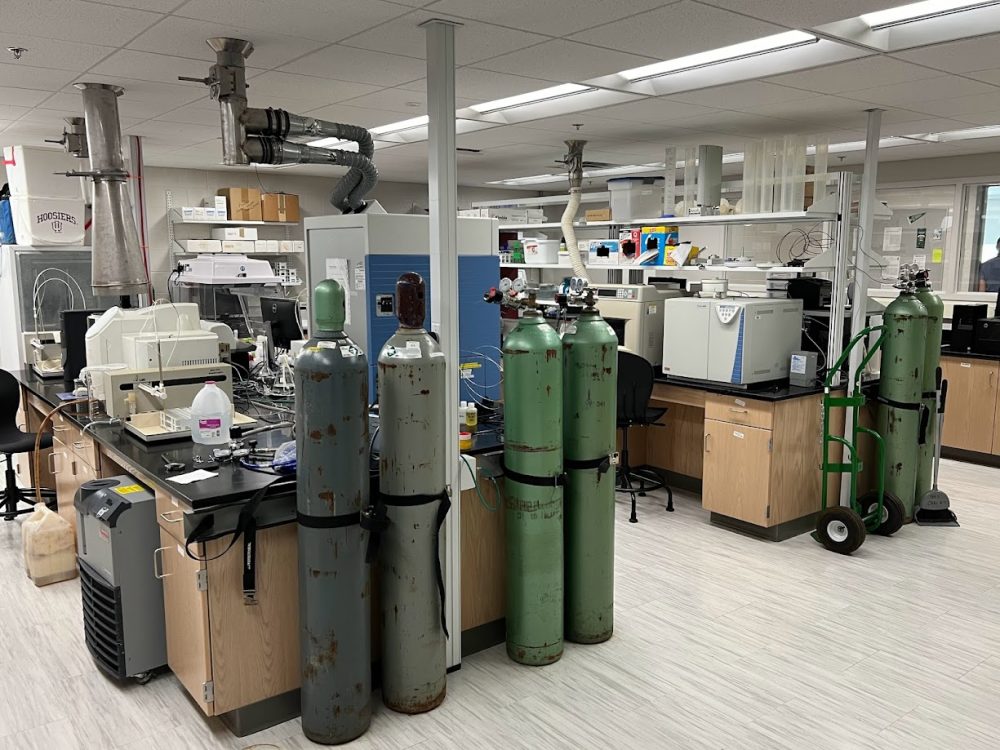
Hydrogeochemistry Lab
Room: McEniry 219
PI: Dr. David Vinson
dsvinson@charlotte.edu
The Hydrogeology lab is home to the LGR Liquid Water Isotope Analyzer. The LWIA can be used to measure 18O/16O and D/H in liquid fresh or sea water samples with high accuracy over a wide range of delta values and is equipped with an autoinjector for easily analyzing multiple samples. The lab is also home to an array of field equipment including drive point piezometers, Tidbits water temperature loggers, a Humminbird 580 fishfinder with GPS, and a YSI 556 multiparameter probe for measuring dissolved oxygen, pH, conductivity and temperature.
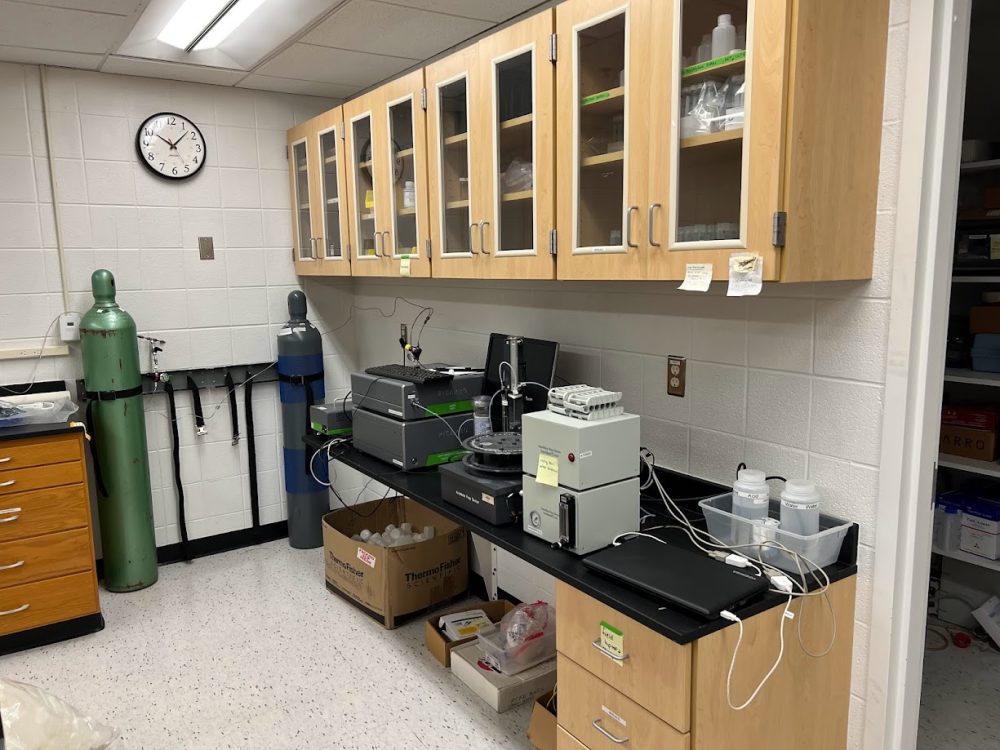
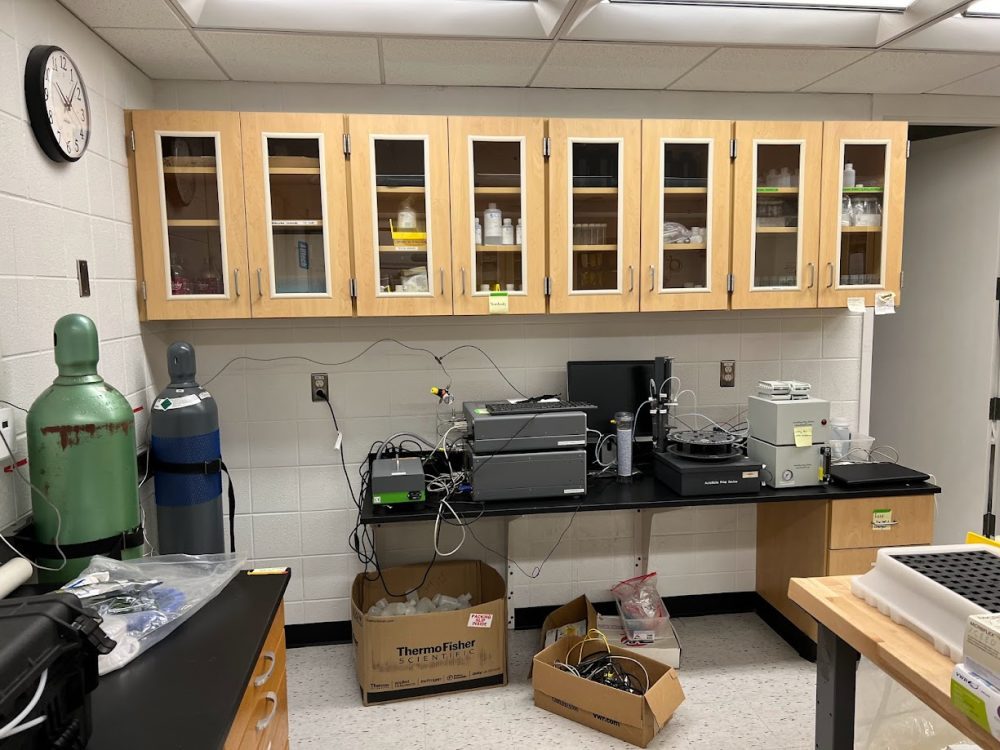
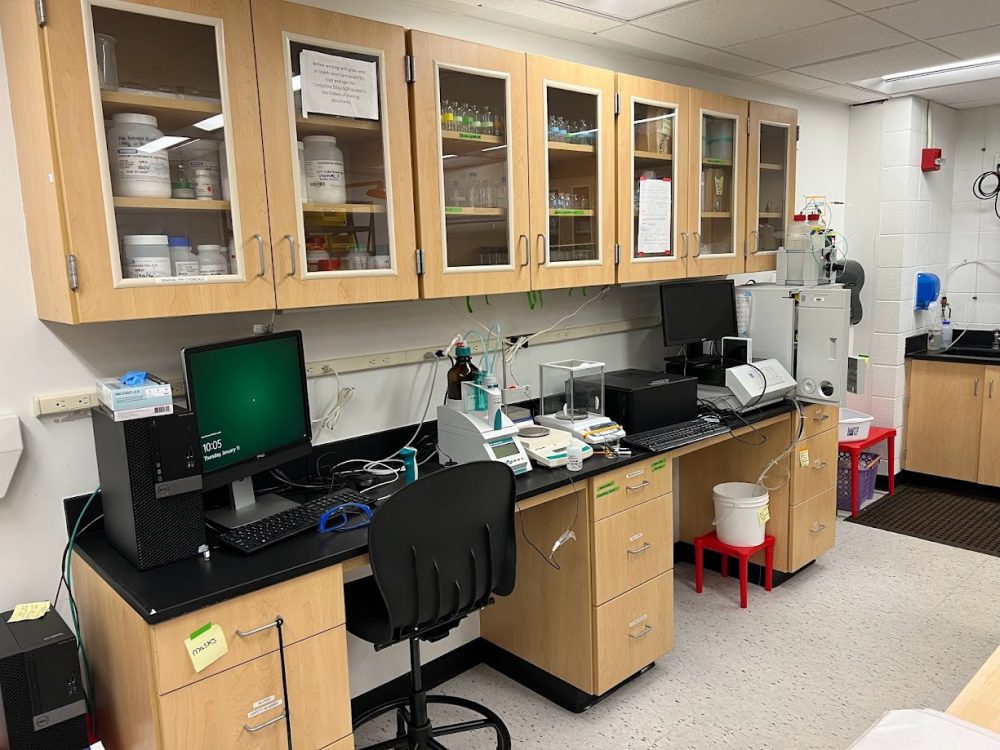
Paleoecology lab
PI: Dr. Patricia Fall
pfall@charlotte.edu
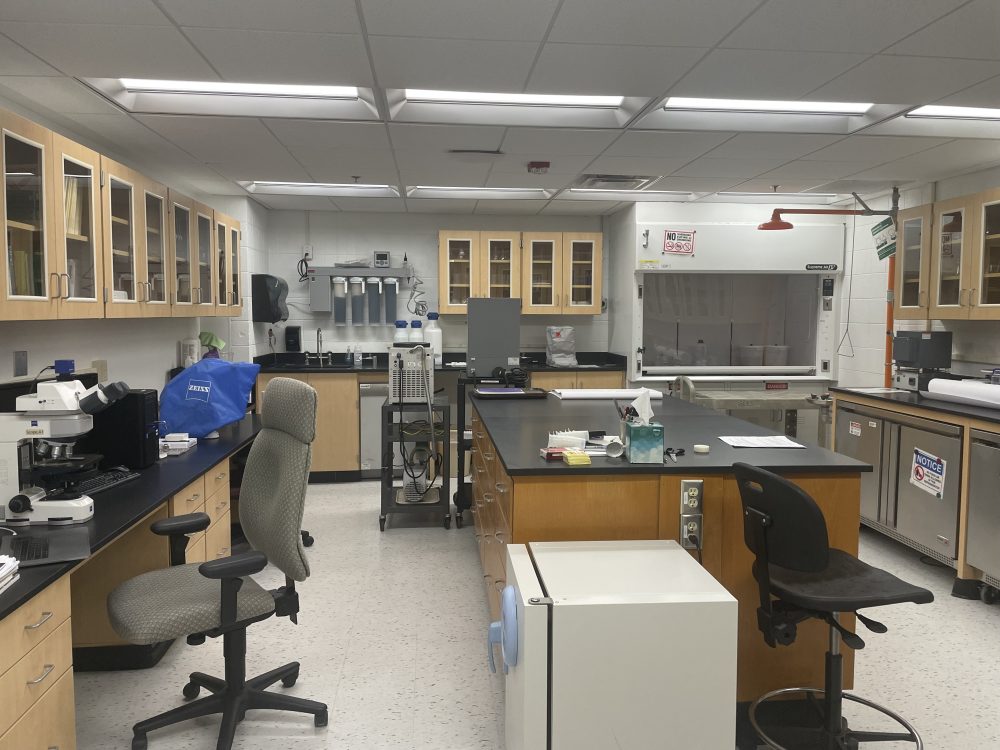
The Paleoecology Laboratory in the Department of Geography & Earth Sciences, houses over 5,000 pollen reference slides and photographs, and collections of several hundred comparative seed and wood specimens, as well as floras and seed atlases pertaining to the Mediterranean, Caribbean and Pacific regions. Facilities in the lab include a fume hood for pollen extraction and chemical analysis, photo-microscopes for both pollen and plant macrofossil analysis, high precision balances, sieves and a sample splitter, computers, including a Dell Alienware laptop for field GIS, remote sensing, and data processing. The Department of Geography & Earth Sciences offers MA and PhD programs in Geography, an MS in Earth Sciences, and an Interdisciplinary PhD in Infrastructure and Environmental Systems (INES), with strengths in earth systems processes, including climatology, biogeography, paleoecology, geomorphology, geology, and geographic information science.
Soils Lab
Room: McEniry 213
PI: Dr. Martha Eppes
The Soils lab is equipped to handle a variety of basic soil and sediment analyses including particle size, pH, soluble salts by electrical conductivity, CaCO3 analysis by Chittick, iron extractions and ion-specific analyses of various cations.
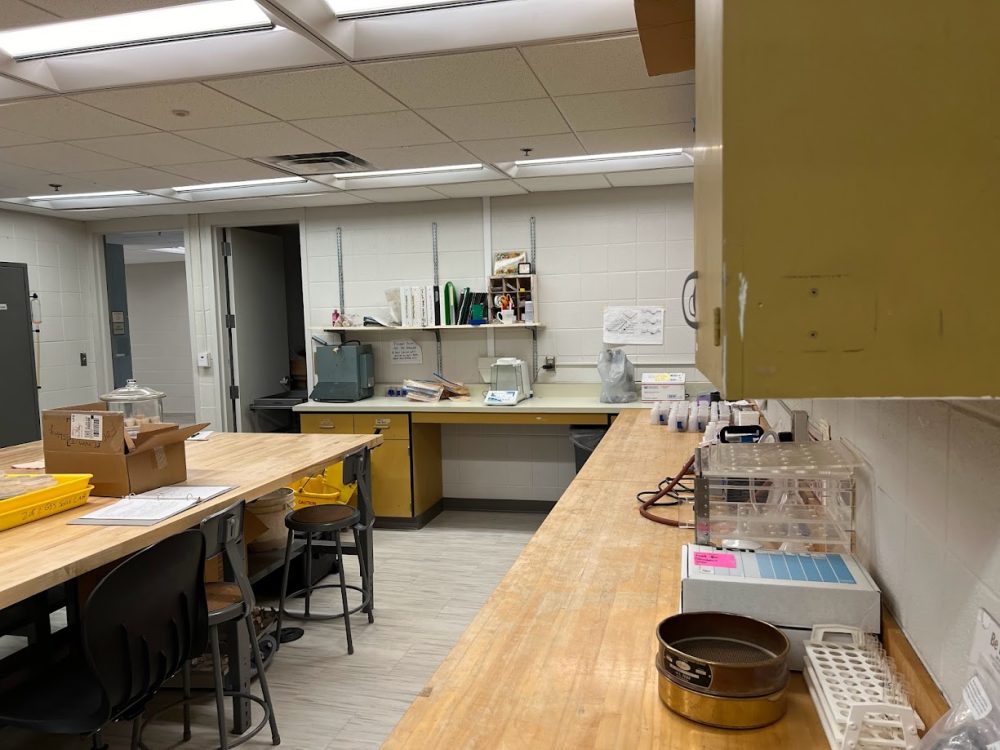
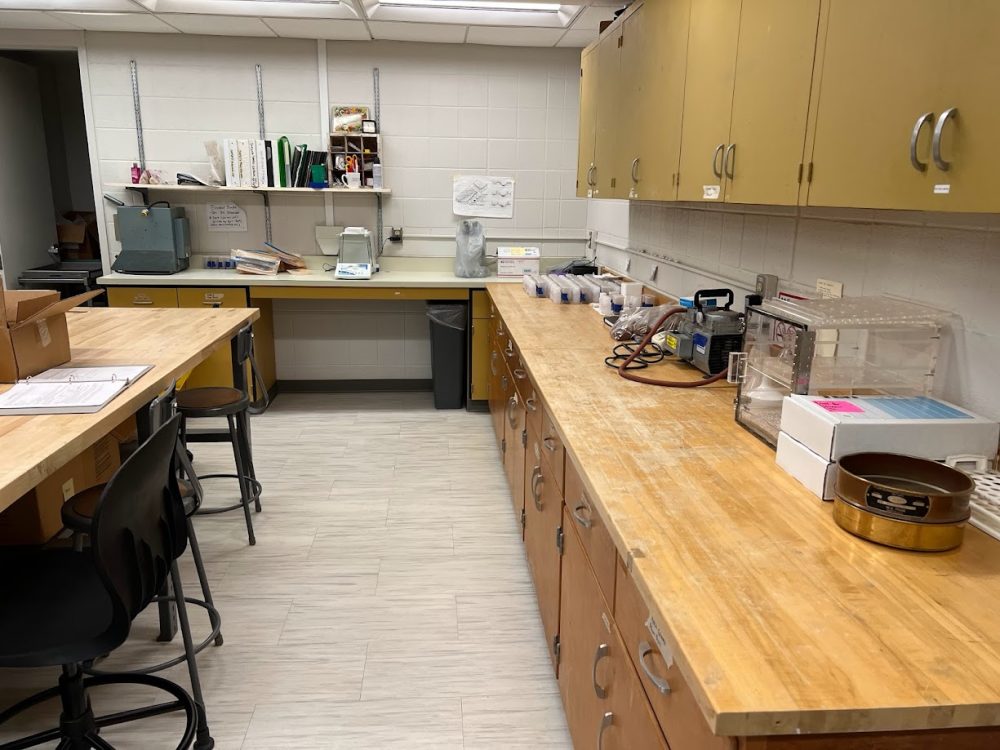
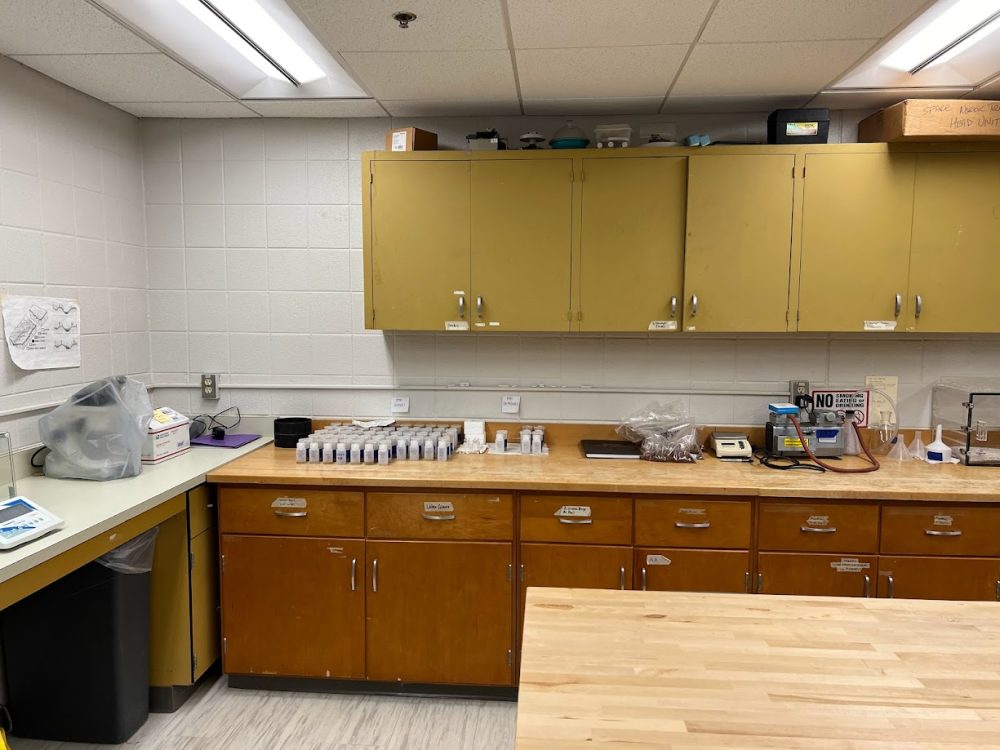
Water Isotope Analzer
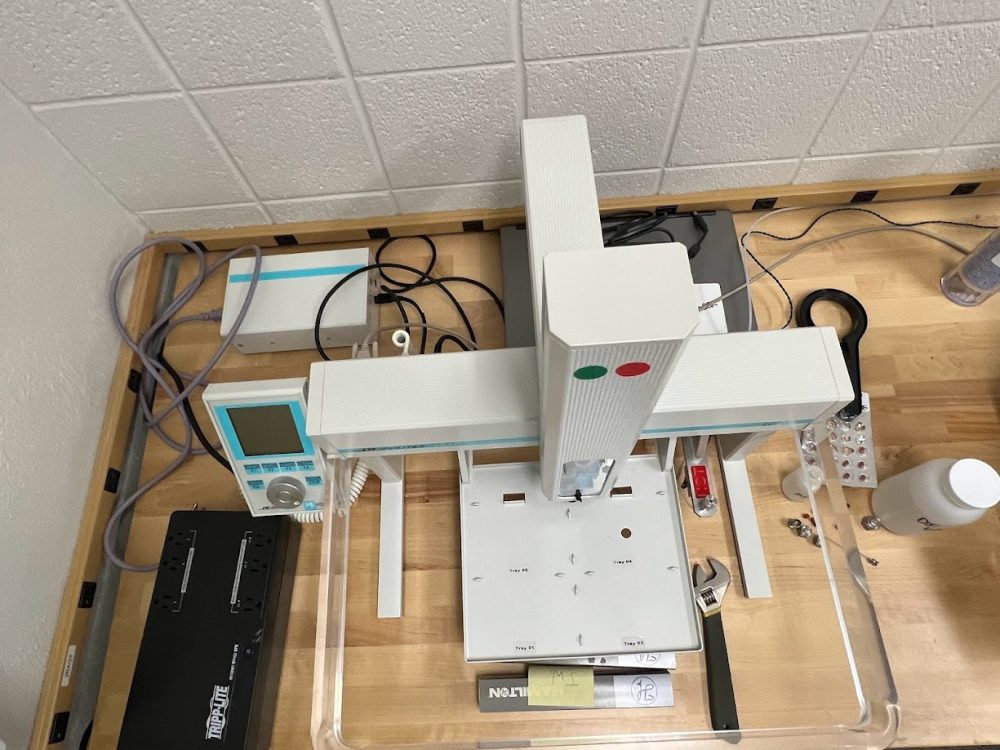
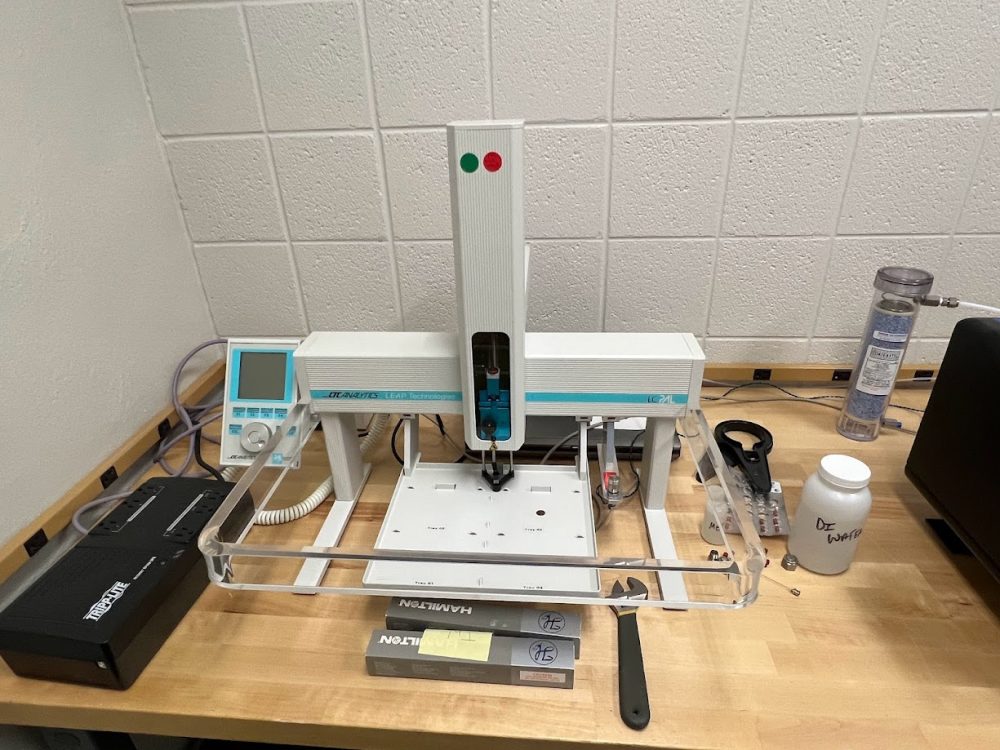
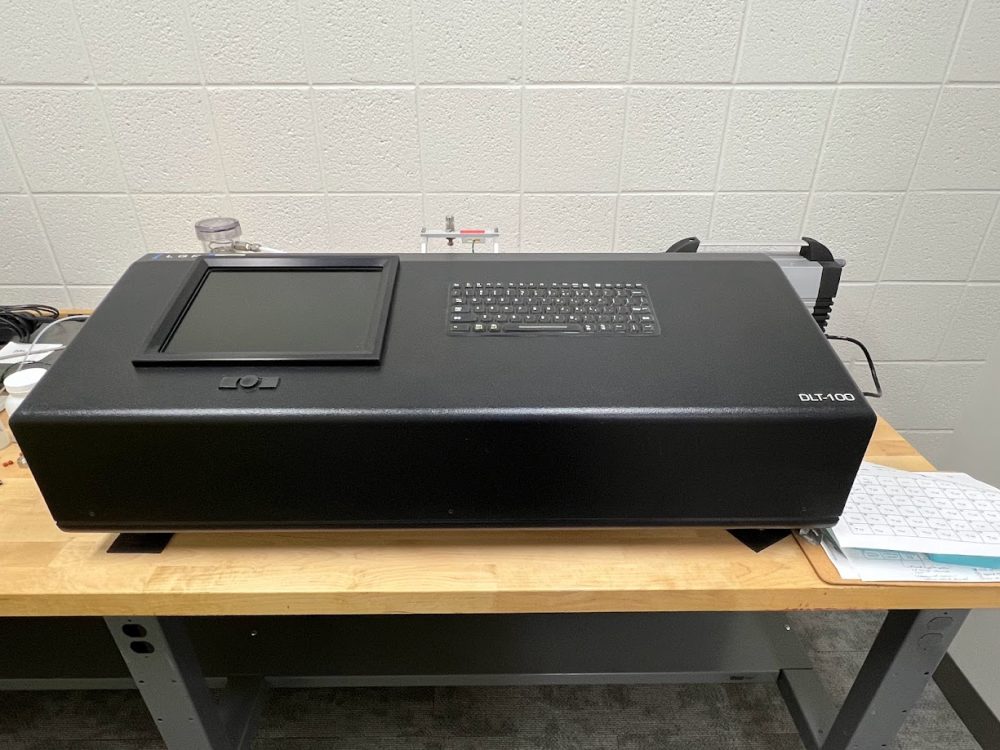
Sedimentary Geology Lab
Room: McEniry 241 PI:
The Sedimentology Laboratory is equipped with a wide range of analytical equipment including (1) a Beckman Coulter LS 13 320 Laser Particle Size Analyzer capable of measuring particles in the 0.04-1000 micron size range (clay to coarse sand), and (2) a rapid sediment analyzer (comprising a 1.5 meter settling tube and computer-controlled digital balance) capable of analyzing sand size sediments, (3) sieves and Ro-Tap, (4) an ELM 3R Luminoscope cathodoluminescence system used to analyze siliciclastic mineralogy and cement histories in both carbonate and siliciclastic rocks, (5) a Frantz Magnetic Barrier Laboratory Separator Model LB-1 used for separating minerals on the basis of their magnetic properties, (6) a range of coring equipment including hand augers, a backpack vibracoring system, a Livingstone coring system and two Wildco coring systems, and (7) a portable catamaran coring platform suitable for lacustrine studies. The lab also is equipped with binocular and petrographic microscopes, digital balances, drying oven, furnace, sonic bath, Geiger counter and an acid resistant hood. The Sedimentology Lab has access to ICP M.S., XRD, XRF, Sedigraph and ground penetrating radar systems for geochemical, textural and shallow subsurface geophysical projects.
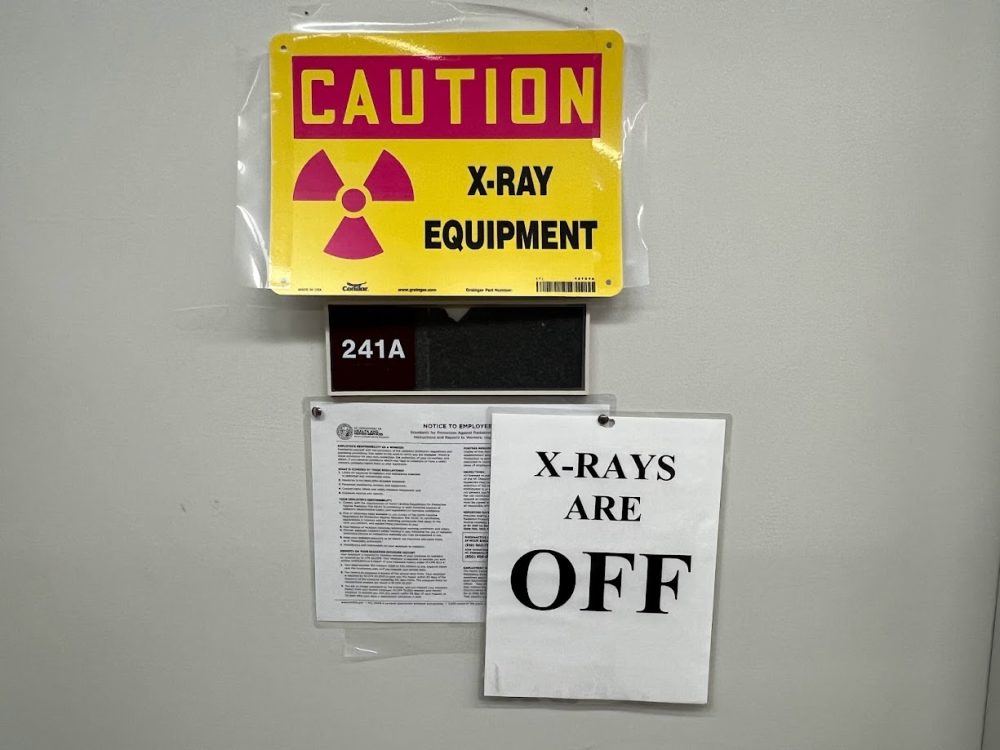
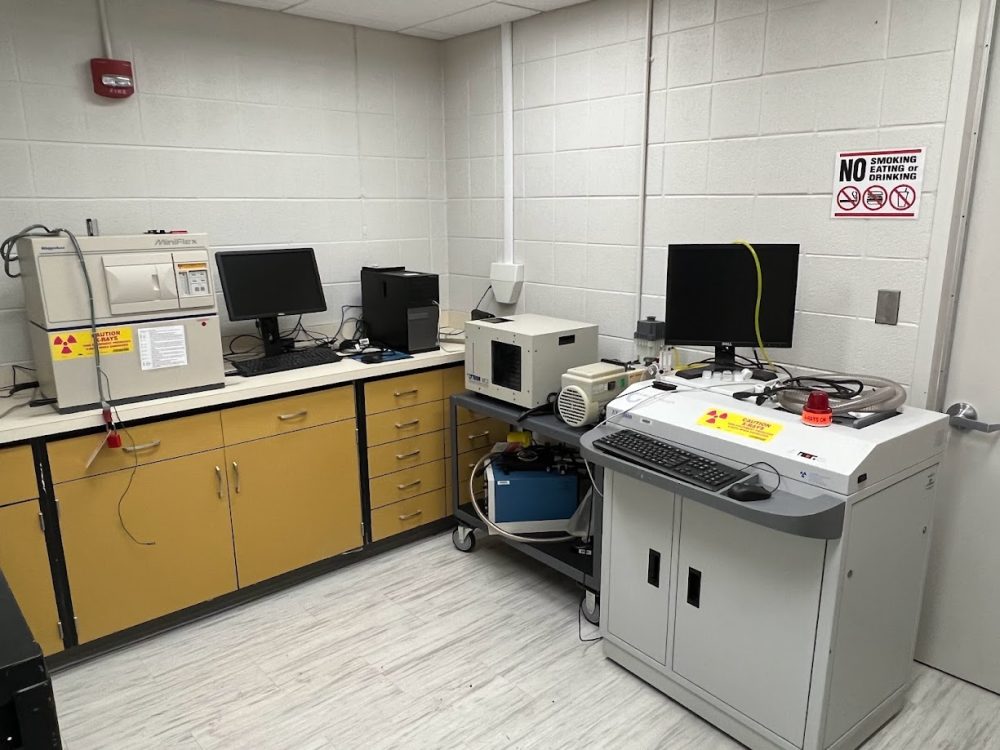
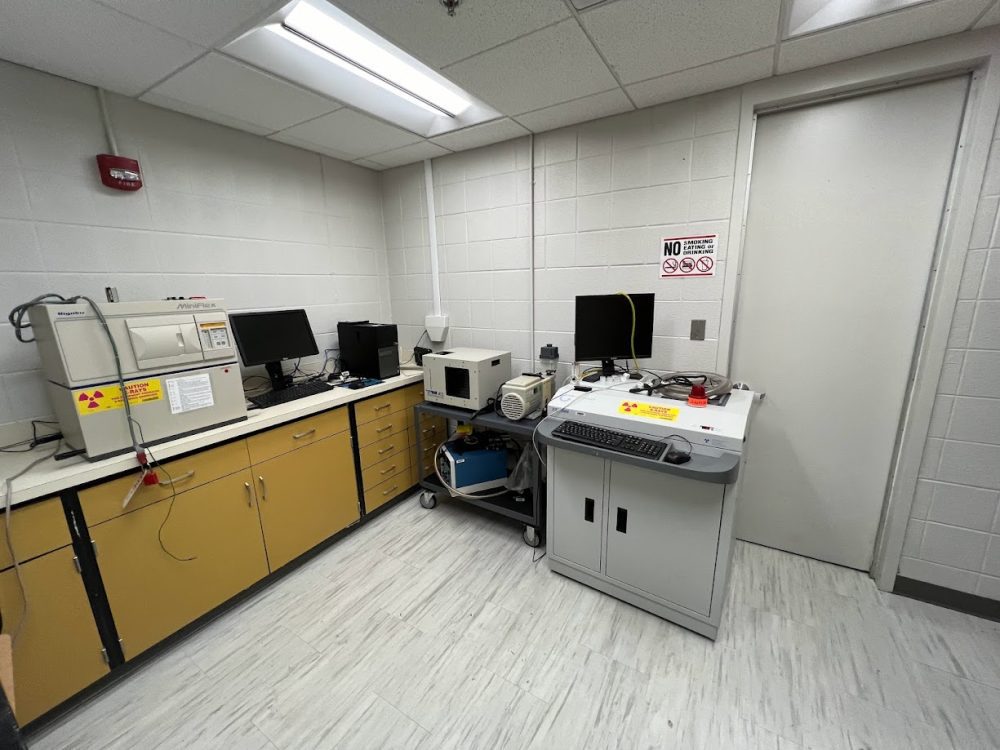
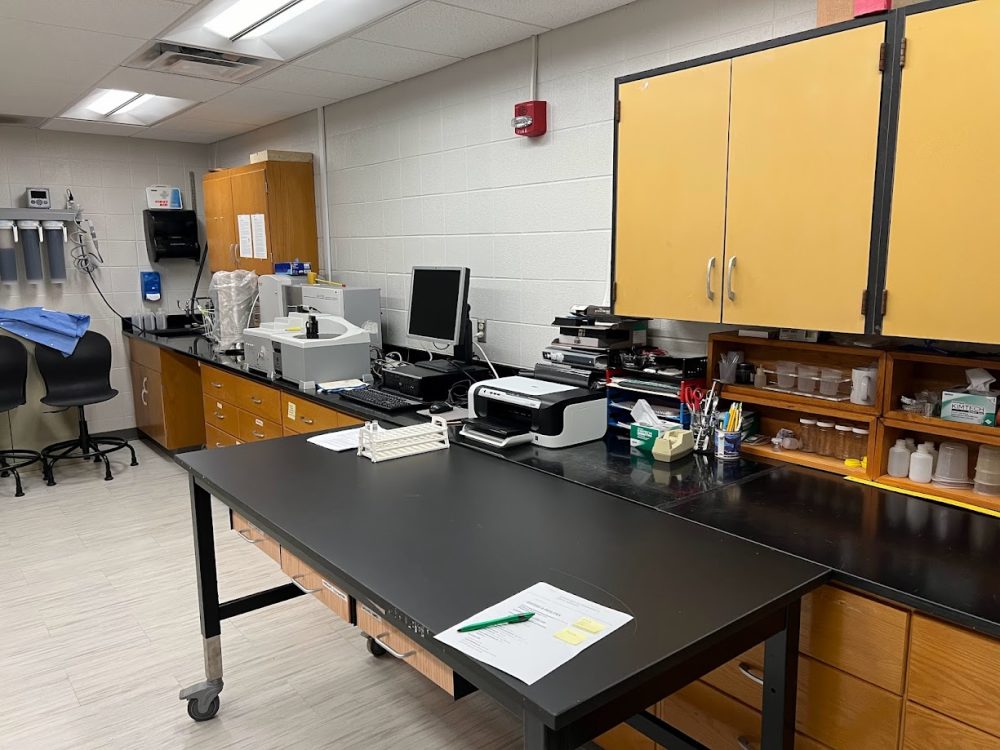
Structural Geology and Applied Geophysics Lab
The Applied Geophysics Lab contains a number of geophysical systems suitable for both near-surface geological and environmental applications as well as deep Earth potential fields studies. We have a GSSI SIR-3000 ground penetrating radar system with 100 MHz, 400 MHz, and 500 MHz antennas. The Lab also maintains a 12-channel Geometrics SmartSeis field seismograph for seismic reflection and refraction investigations. For potential fields research we have a Geometrics G-858 portable cesium magnetometer and an older Geometrics proton precession magnetometer, a Scintrex Autograv gravity meter, and a Syscal multi-channel resistivity meter. Our systems are designed to be integrated with on-going research in field geophysics, tectonics, and sub-surface environmental studies.
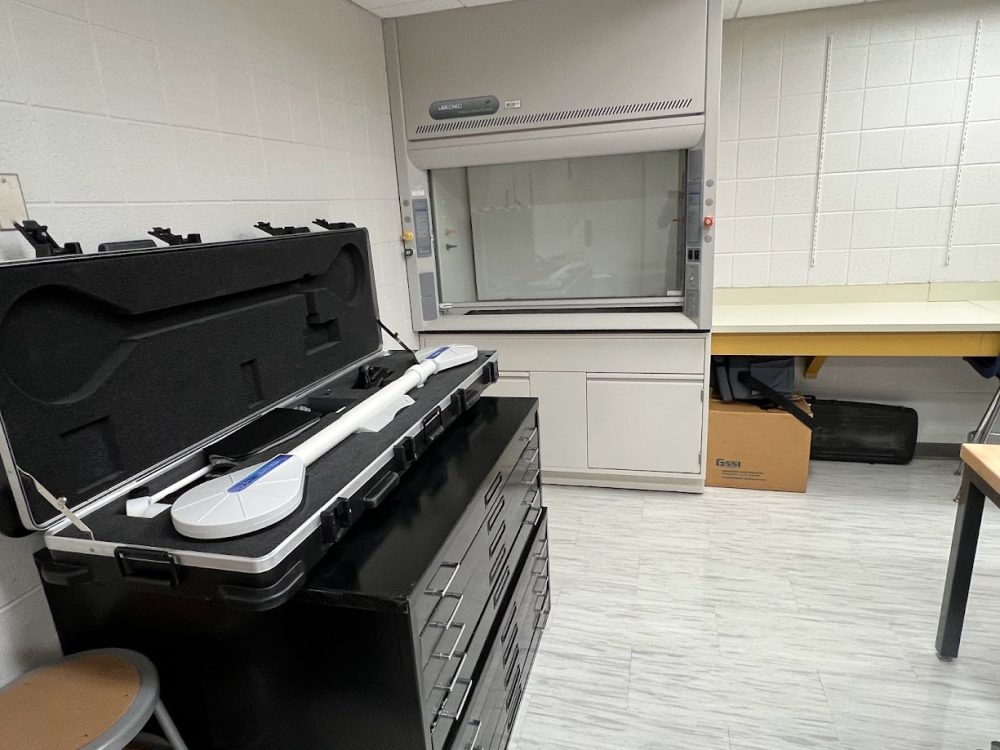
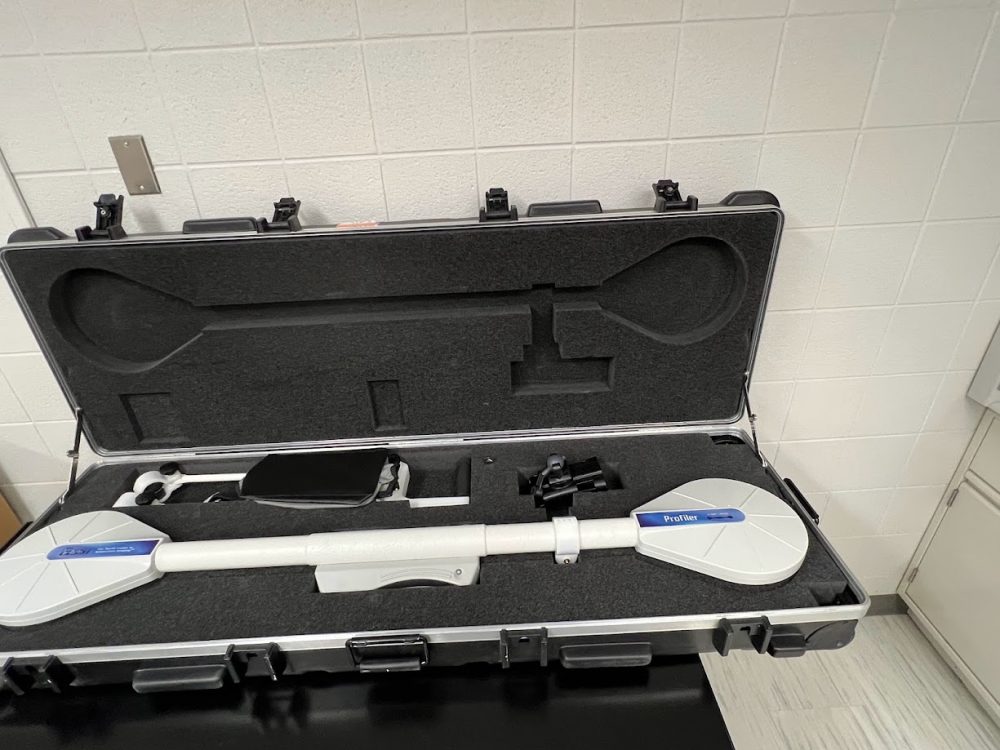
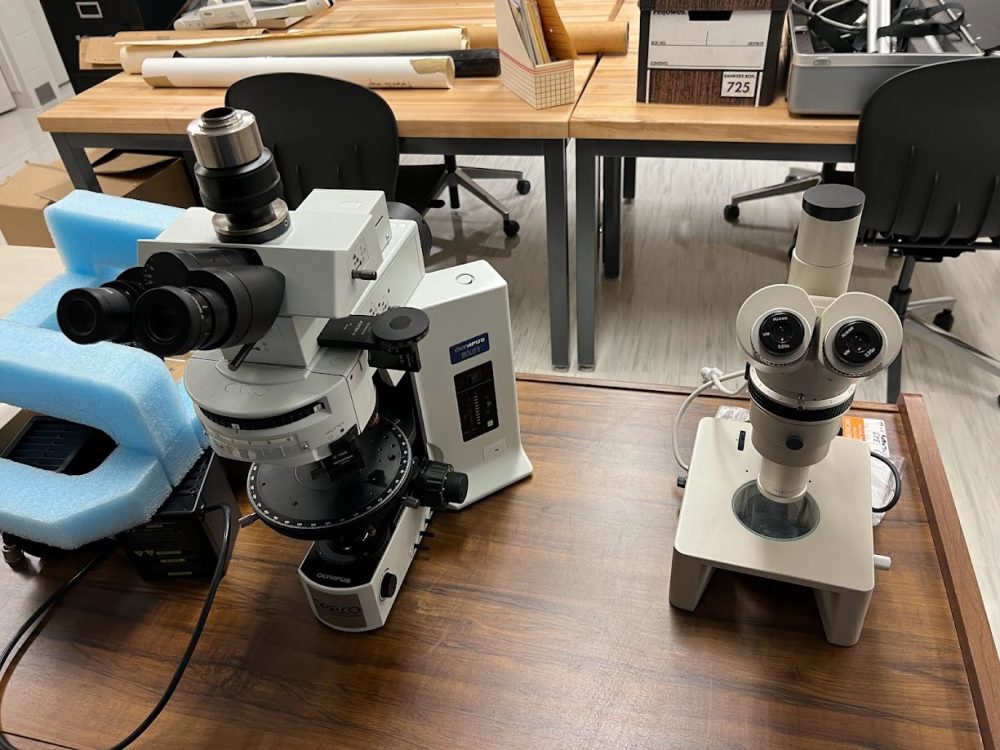
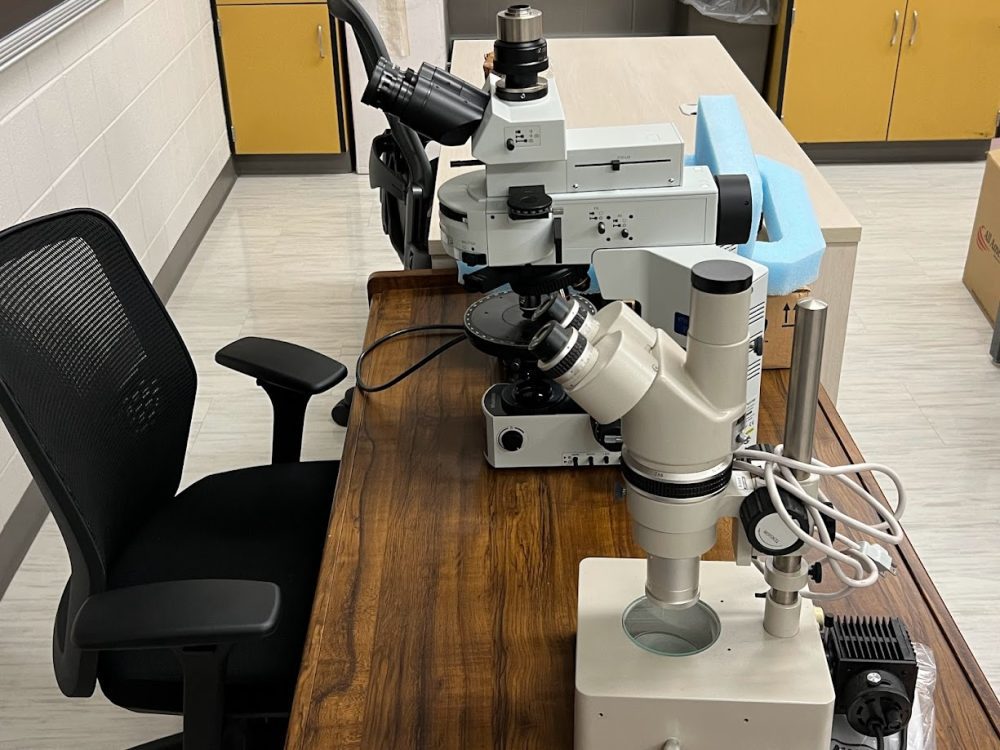
Rock Preparation Lab
The rock prep lab is equipped with 2 Covington slab saws, 2 Hillquist trim saws, 2 tile saws, and 3 lap wheels.
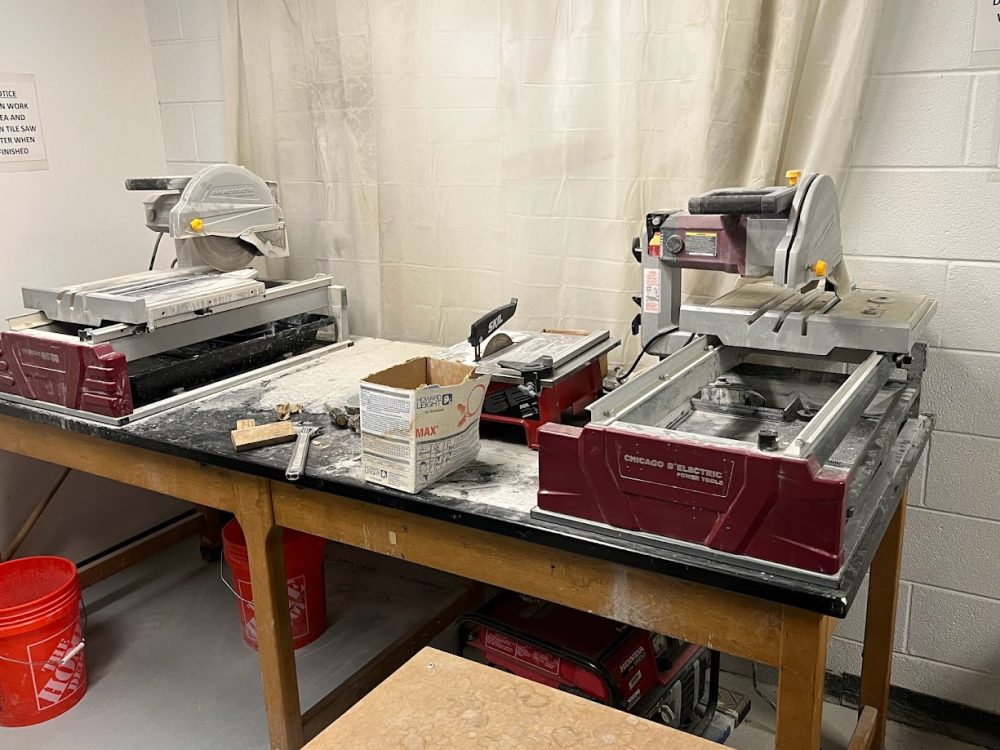
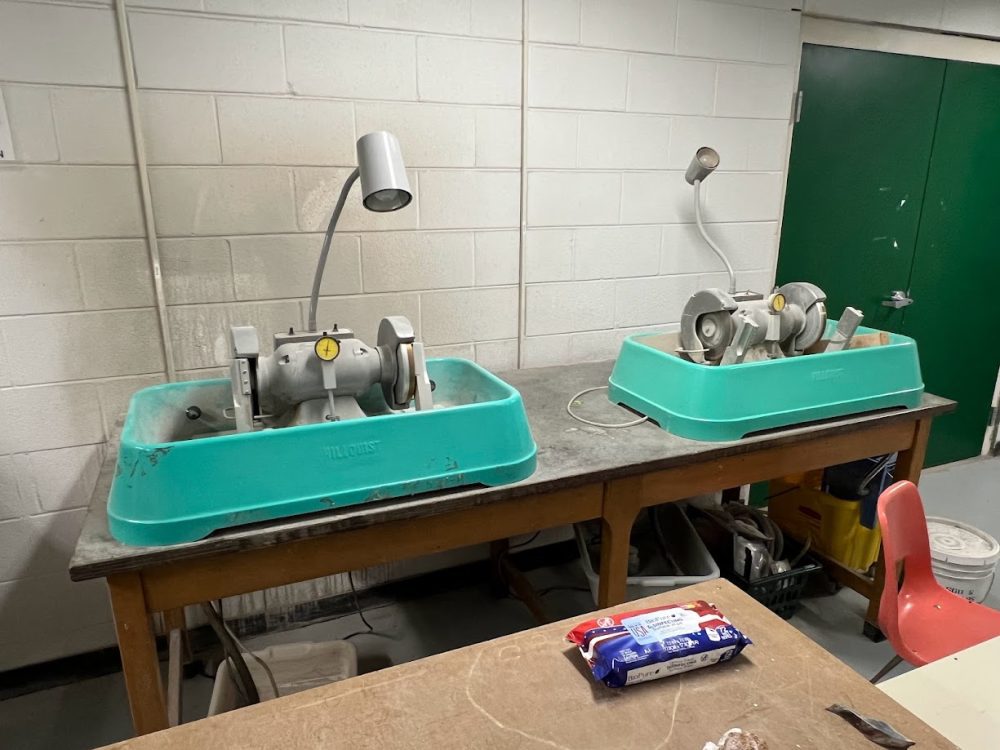
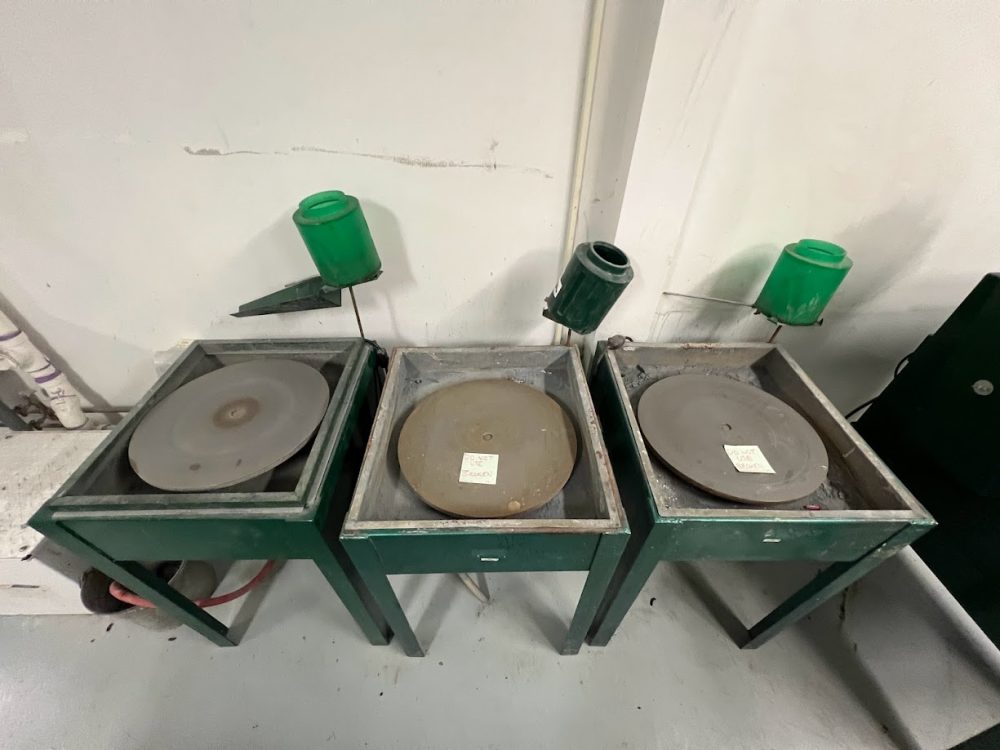
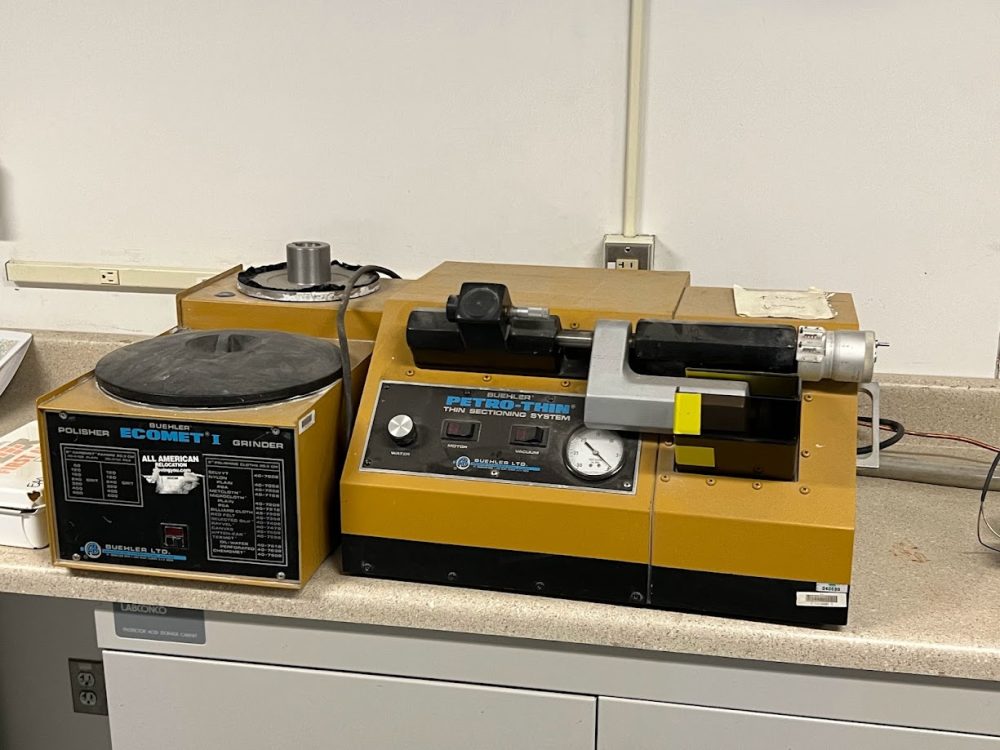
Teaching facilities
hydrological sciences teaching lab
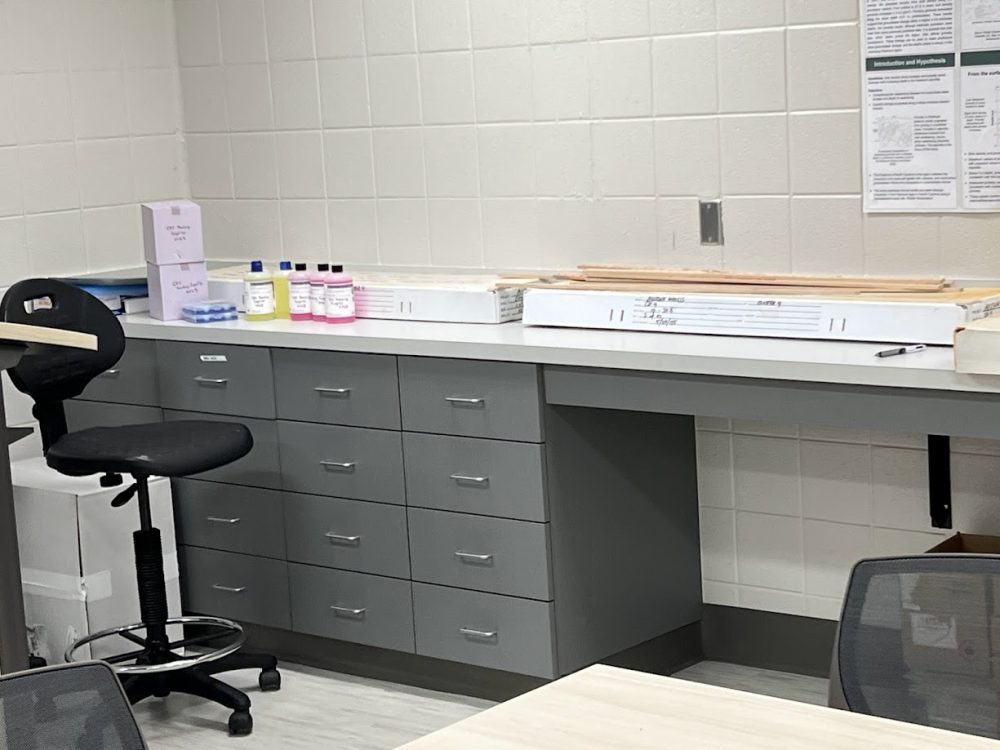
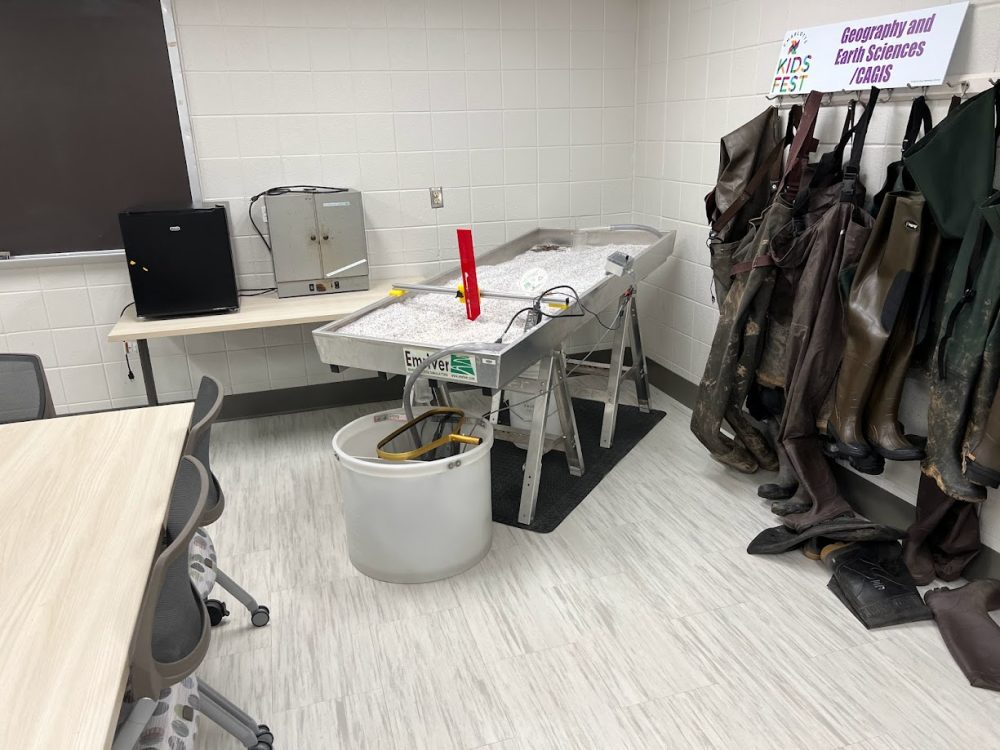
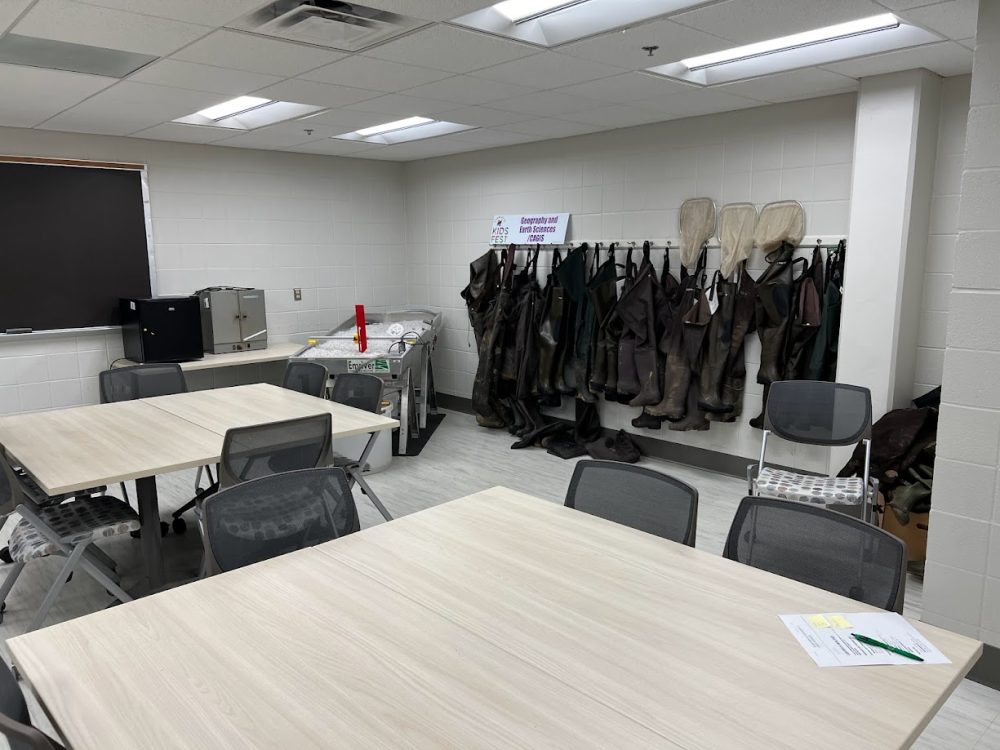
MEteorology teaching lab
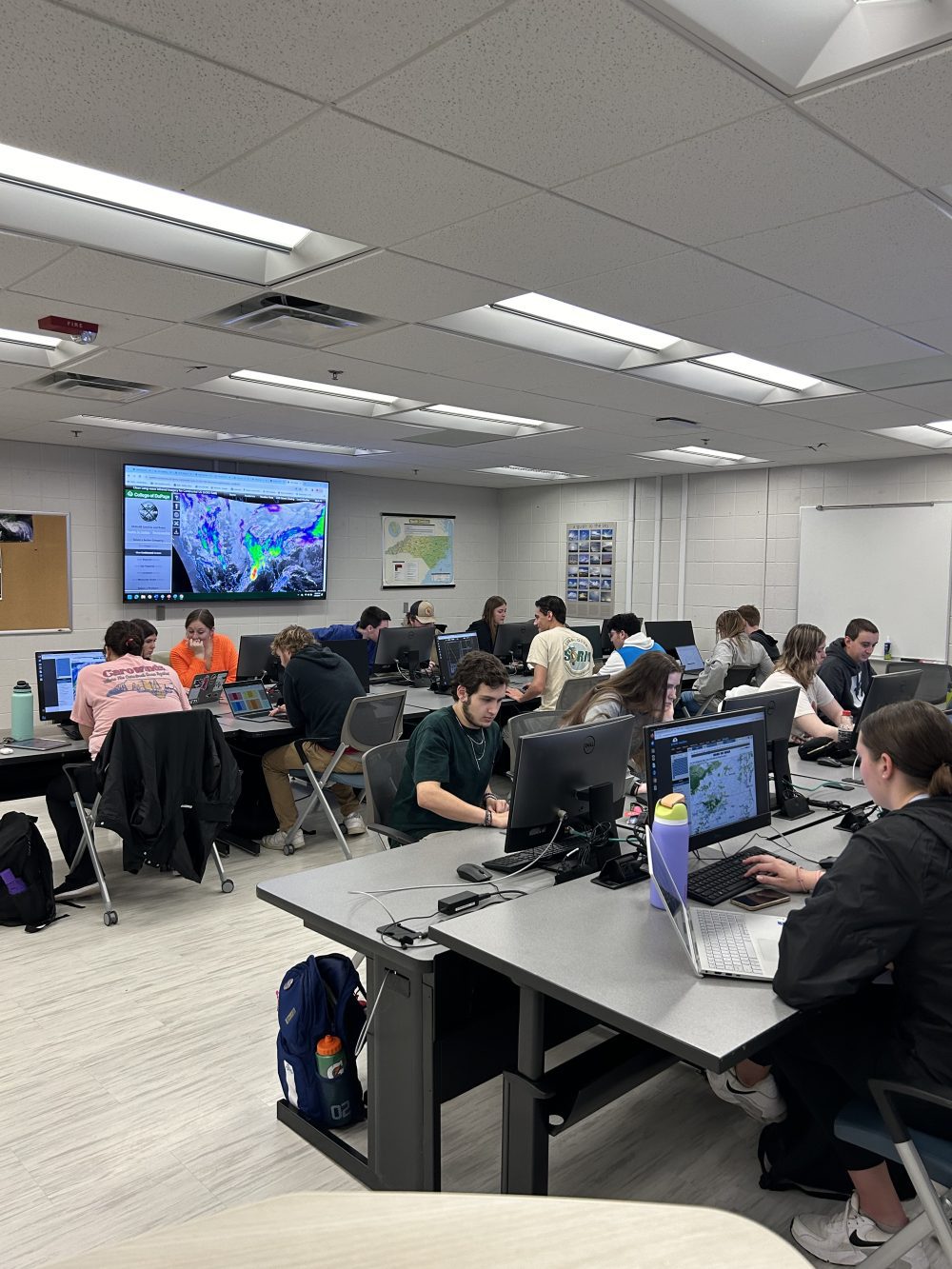
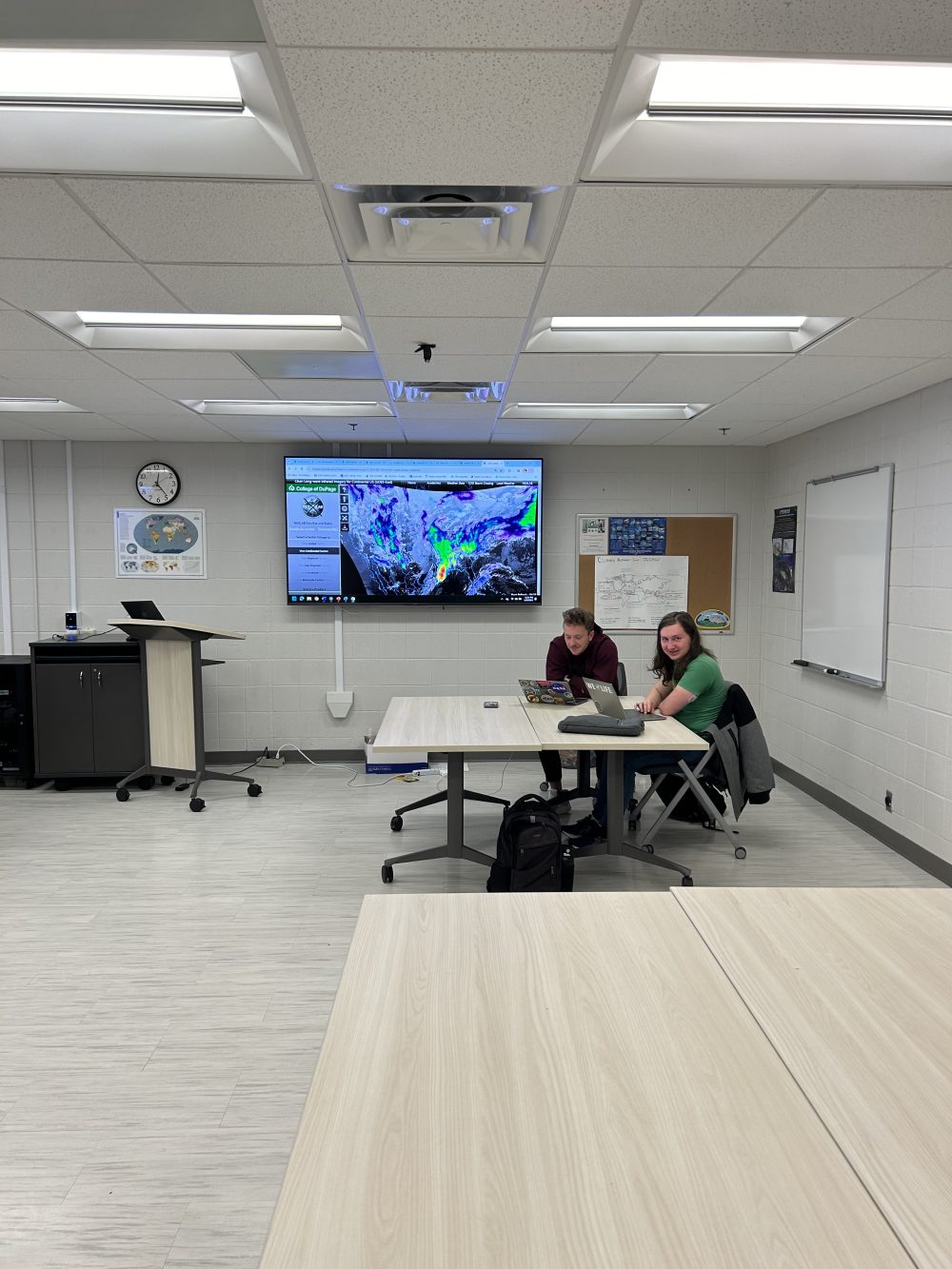
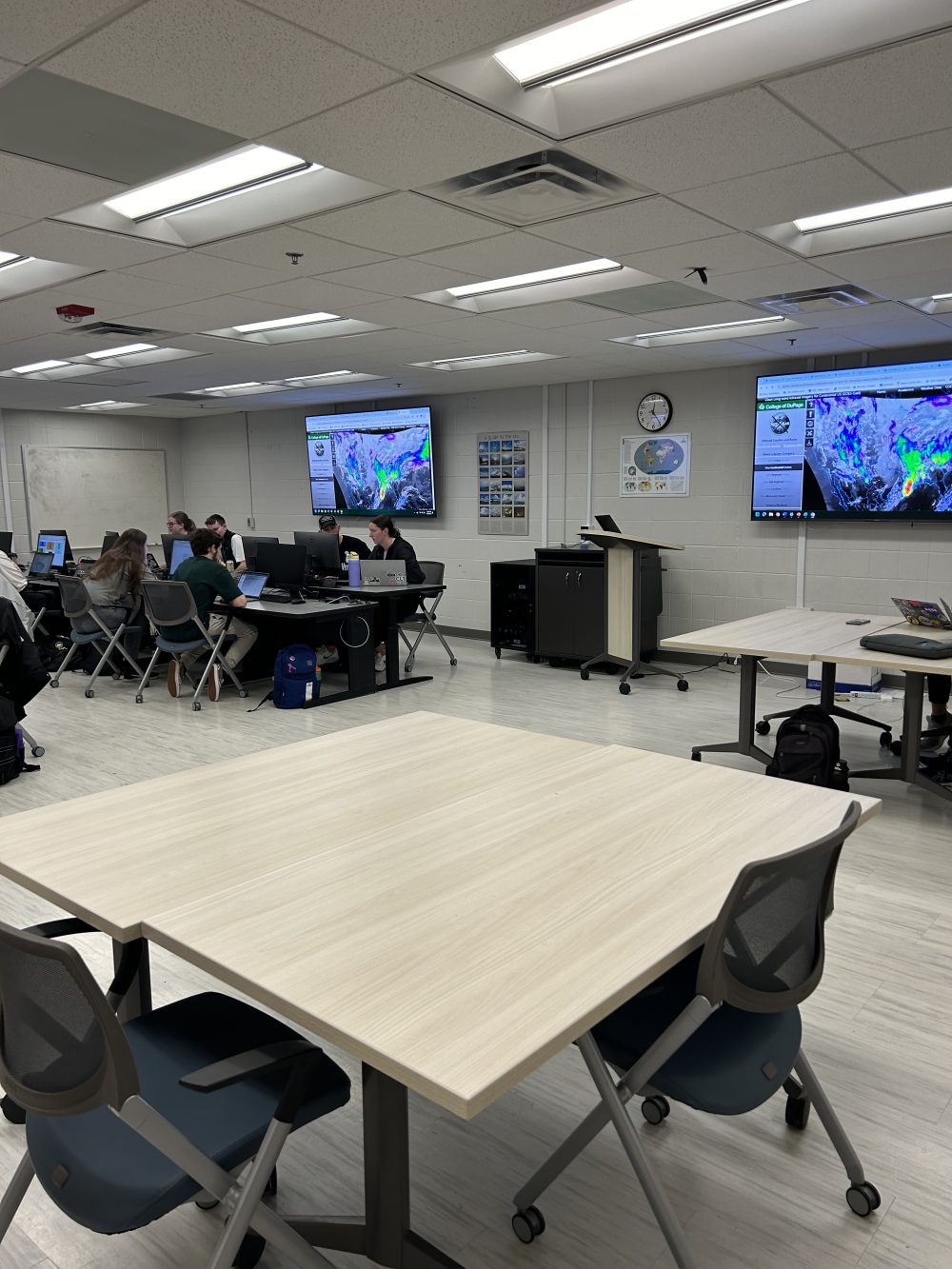
MINEralogy and petrology classroom
The Mineralogy and Petrology classroom includes student petrographic microscopes and an extensive rock and mineral collection. A dedicated teaching microscope is equipped with a digital camera for image projection. An installed software package is designed for image and data collection and processing.
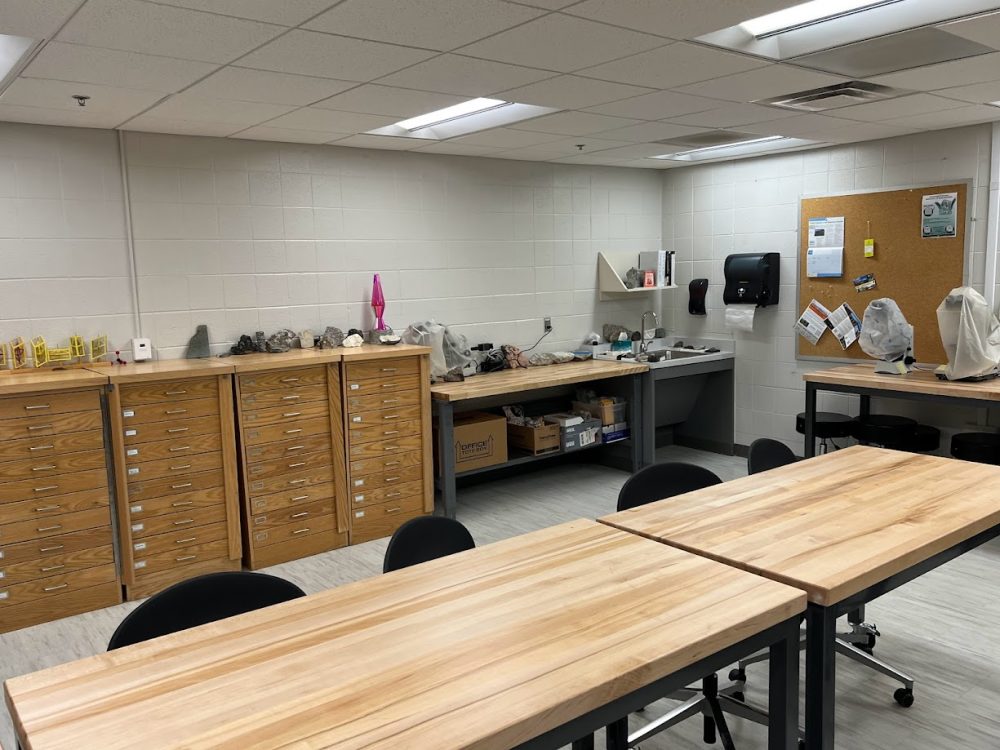
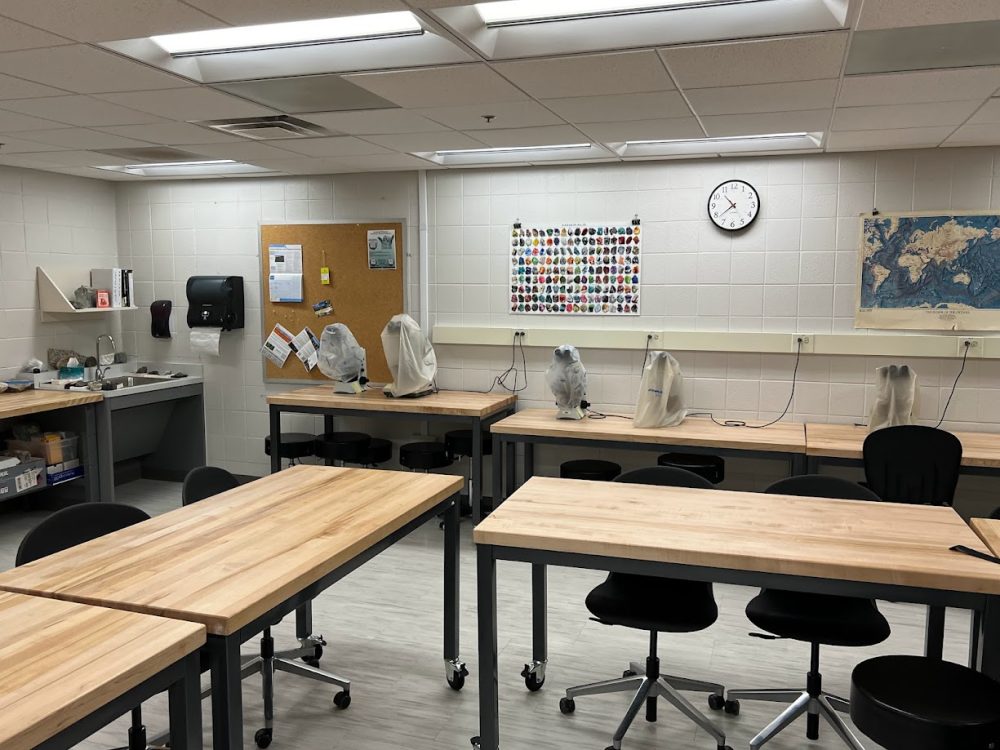
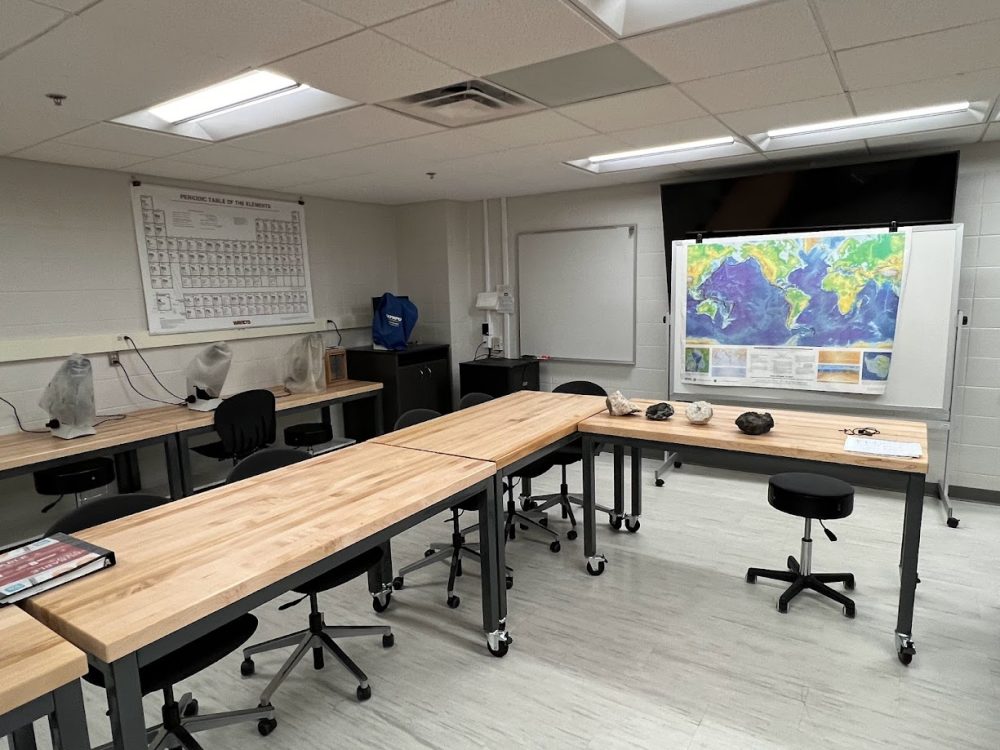
structural geology and applied geophysics classroom
